The FORD-method is an easy way to get a friendly conversation going.
What is the FORD-method?
The FORD-method is an acronym that stands for family, occupation, recreation, dreams. By asking questions related to these subjects, you can master small talk in many social settings. It’s an easy-to-remember system of questions that helps with rapport building and small talk.
Sections
How does the FORD-method work?
The FORD-system helps you base your conversation around a set of topics when talking to people. These topics tend to be universal, which means they can work in almost all situations. The better you get to know someone, the more more specific or personal questions can you ask.
Family
Since most people have a family this topic makes for an easy icebreaker. Since most people tend to talk about their family, you can use their previous conversations to ask more thought-provoking questions.
Remember that family isn’t just about blood relatives. Many people consider their partners, friends, or pets as part of their family.
Here are some sample questions you can try
- Do you have any siblings?
- How did you two meet? (if you are meeting a couple for the first time)
- How old is your child?
- How is your____ (sister, brother, mother, etc.) doing since ____ (event that happened?)
Family questions with family members
When talking with actual family members, you can use questions related to people you both already know.
- What did you think about (family member’s event?)
- How have you and ____ (person’s relative) been?
- When is the next time you want to get together?
Family questions to avoid
Important to keep in mind that family issues can also be sensitive. You don’t want to poke or prod any personal issues. You also don’t want to assume you know what the future holds for someone.
Try to avoid asking the following questions until you really know someone:
- Are you going to have children?
- When are you and ___(partner) going to get married/move in together?
- What is your relationship like with your parents?
- Why don’t you and ___ (family member) get along?
Occupation
Almost all adults work or have worked at some point in their lives. We spend a large bulk of our day working, so asking about someone’s job tends to be a fairly foolproof question.
- What do you do for a living?
- How do you like working at _____?
- What’s your favorite part of your job?
- What made you interested in becoming a _____?
Occupation questions when you aren’t in the workforce yet
If you’re in college or in your early twenties, you can also ask about academics, since this tends to segue into someone’s job.
- What are you majoring in?
- Where are you interning right now?
- What are you hoping to do after you complete your degree?
Occupation questions with your own coworkers
When talking with coworkers, it’s important to be mindful about blurring the line between professional and personal boundaries. Being social at work is an important skill that blends social skills with compassion and intuition.
Some good questions to ask coworkers include:
- What made you want to start working here?
- What’s your favorite part of the job?
- What did you think about that recent workshop/training/meeting?
Occupation questions to avoid
Work can also be personal, and you don’t want to cross boundaries or make someone feel uncomfortable. Avoid these questions:
- How much money do you make doing that?
- Isn’t that company unethical?
- Why would you want to work there?
- What do you think about ____ (specific coworker)?
Recreation
Recreation refers to the hobbies, interests, or preferences someone has. We all have unique parts of our personalities, and these questions can help you get to know someone better.
- What do you like to do for fun?
- Have you watched (or read) ______(popular show/book)?
- What are you up to this weekend?
This category should remind you why it’s important to have hobbies and interests of your own. The conversation will quickly feel one-sided if the other person has plenty to say, and you have nothing to contribute.
If you’re struggling to find the right hobby, check out our guide with our 25 favorite suggestions.
Recreation with people who share similar hobbies as you
Once you discover that someone has the same passions as you, you can deepen the conversation more by asking the right questions.
- How did you get started in ____?
- Have you ever tried ____ (certain technique or event related to the hobby itself)?
- What other hobbies are you into?
Recreation questions to avoid
It’s hard to “mess up” a recreation-related question. But you should still try to be mindful of making any negative judgments or rude comments related to a particular hobby. This can come across as incredibly insensitive.
For example, try to avoid questions like:
- Isn’t that really hard?
- Isn’t that expensive?
- Do you ever get lonely or frustrated doing that?
- I thought only _____ (certain types of people) did that kind of thing?
Dreams
Dreams can reveal a lot of information about a person’s inner world. They might also open the door for deeper conversations.
While they aren’t always appropriate for initial small talk, they can be beneficial when you’ve already established a connection with someone.
- Where do you hope to be working in the next few years?
- Where would you like to travel?
- What’s something you’d like to try in the future?
- Would you ever consider trying _____ (particular hobby or activity)?
Having your own FORD answers
It’s one thing to be good at asking the right questions. But real social skills come from learning how to maintain a conversation.
You can’t just interview another person and expect to establish a meaningful relationship. In other words, you need a mutual take-and-give. Pay attention to someone else’s answers and think about how you can draw from your own experience to connect.
Keep your own life interesting
This is the best way to keep your conversations interesting. The more you keep yourself active, curious, and enriched, the more you can offer to other people.
Keep trying new things. Change your routine. Take risks, like talking to new people, trying new classes, and joining in new activities. By embracing life, you can naturally become a better conversationalist.
Practice vulnerability
You should also be comfortable talking about your family, occupation, recreation, and dreams. Vulnerability isn’t all-or-nothing. You don’t have to share your entire life story.
But get in the habit of giving people tidbits of information when it feels appropriate. For example, if they tell you they’re going through a bad break-up, you might comment on how you went through a difficult breakup last year. Or, if someone talks about wanting to quit their job, you can mention how you’ve had similar thoughts yourself.
See our main article on how to open up to people for more tips.
Common questions
How do you know which FORD topic to start with first?
If you’re not sure where to start, occupation tends to be the easiest topic. It’s also one of the most common icebreaker questions when getting to know someone. You can start with saying, “so, what do you do?”
Make sure that you have a follow-up answer. For example, if they tell you that they work in sales, you might share how your brother also works in sales. Or, you can share that you tried working in sales once, but found it challenging.
Which topic should you shift to next?
There isn’t a right-or-wrong answer for keeping the conversation flowing. It comes down to increasing your social intelligence. Some people are naturally socially skilled, but other people need to develop this strength.
This comes down to practice and experience. You need to expose yourself to many different social situations to learn how to engage in small talk.
How do you talk when you have nothing to say?
Start by building a life that gives you things to talk about! Although this advice may come across as cliched, you need to be interesting to have something to say. This is where hobbies, passions, and even your work come in. The more involved you are with life, the more topics you’ll have to share.
See our main guide on how to know what to say even if you don’t know what to talk about.
What do you say in a conversation?
Start by reading the room. Is the other person more talkative or quiet? If they are talkative, you can ask questions that encourage them to keep talking. If they are quieter, you might want to focus on making comments that connect a shared experience (“I can’t believe it’s so cold today!”)
See our main guide on how to start a conversation.
How can I hold better conversations?
Work on building and practicing your social skills. This takes time and practice. It also requires learning about nonverbal body language to intuit how other people may think and feel.
If you struggle with this concept, check out our main guide on the best body language books.
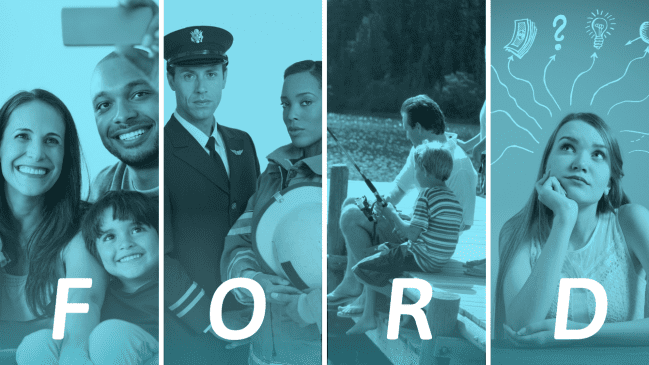
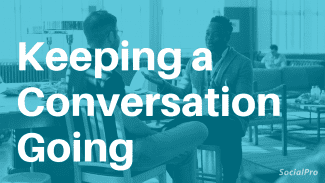






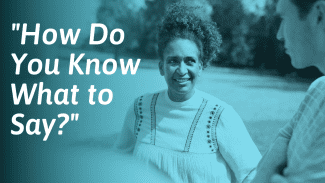
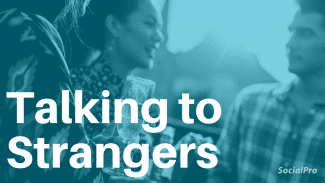
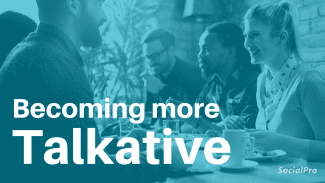


I think i have interesting things to say but im just too afraid to talk to other people